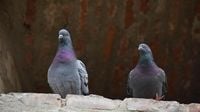In a bold move to tackle the soaring pigeon population in Valencia, the city council has announced hefty fines for behaviors contributing to the issue, including a staggering 3,000 euros for feeding these birds and for urinating in public spaces. As of 2025, Valencia is home to nearly 36,000 pigeons, a significant increase from approximately 22,000 in 2021, according to an initial mapping by the city council.
The decision was unveiled on May 6, 2025, as part of a broader strategy aimed at controlling what officials have termed a "superpopulation" of pigeons in the city. This strategy includes the implementation of a new Urban Cleaning Ordinance, which was first hinted at back in March. The ordinance is designed to specify sanctions for various irregular practices, with the feeding of pigeons classified as a "very serious" offense due to its role in the burgeoning bird population.
Juan Carlos Caballero, the Councillor for Animal Welfare, emphasized the need for immediate action to curb the rising numbers. He stated, "We have the objective to contain and reduce it," referring to the pigeon population. Caballero outlined three primary factors contributing to the increase: abandoned buildings that attract nesting, ineffective previous control measures, and uncontrolled feeding by residents.
To address these issues, the city council has engaged the services of Lokímica, a pest control company with over 40 years of experience in urban pest management. The council has allocated a budget of 220,000 euros for pigeon control services over the next two years. The first step in their plan involves conducting a comprehensive bird census throughout Valencia to determine the exact locations of the highest populations.
According to the city council's findings, the areas with the highest concentrations of pigeons include the Maritime district, Patraix, and Ciutat Vella. In response to this alarming growth, officials have outlined several measures to mitigate the problem. These include public awareness campaigns aimed at educating residents about the negative impact of feeding pigeons, as well as reviewing and relocating pigeon feeders that utilize sterilizing feed.
Caballero pointed out that many of the existing feeding stations have proven ineffective and will be removed. The city plans to maintain nine of the 16 feeders currently in place while introducing deterrents such as controlled captures and sound systems to manage the population more effectively.
In a bid to ensure the humane treatment of pigeons, Caballero clarified that any captured birds would be transferred to "ecological dovecotes," and no birds would be harmed unless their veterinary conditions necessitated it. "It's a mistake to think that feeding pigeons is an act of love; it actually exacerbates the problem," he noted, explaining that leftover food attracts rodents and other pests, leading to public health concerns.
Furthermore, the pigeon droppings pose a significant threat to urban heritage, as they are corrosive and contribute to ecological imbalances by displacing native bird species. The city council has received numerous complaints regarding the presence of pigeons, processing around 100 related cases in 2024 alone.
As part of their strategy, the city council is also focusing on monitoring abandoned buildings, which serve as nesting sites for pigeons. Officials are urging property owners to maintain these buildings to prevent them from becoming havens for pigeons. Caballero stated that the city is determined to create a balanced ecological environment while addressing the public nuisance caused by the pigeon population.
In summary, Valencia's initiative to impose fines for feeding pigeons and urinating in public is a significant step towards managing the city's growing bird population. This approach combines education, humane treatment, and strict regulations to ensure a healthier urban environment for all residents. As the city moves forward with its plans, the emphasis remains on creating awareness and fostering community involvement to tackle this pressing issue.
By addressing the root causes of pigeon overpopulation and implementing effective control measures, Valencia aims to restore balance to its urban ecosystem and improve the quality of life for its citizens.




